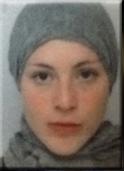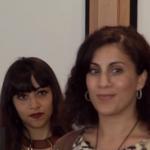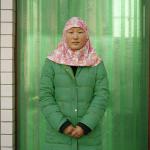For the Inclusive Mosque Initiative (IMI) founders, being inclusive means acceptance, accessibility, and non-compulsion in religion. Dervla Shannahan, one of IMI's co-founders, writes about their quick growth and overwhelming success.
The Inclusive Mosque Initiative began with friends reflecting on inclusive Muslim spaces around the world and the desire to have something similar in the UK. As our site explains, it began “as a result of the dire need for a greater number of Islamic spaces that are inclusive and accepting of the diversity of Allah's (swt) creations.” We very quickly started discussing the initiative with international contacts and at local events we attended, and within two months the first Inclusive Mosque Initiative (IMI) meeting happened. From the beginning we heard overwhelmingly positive responses. Muslims said:
I want to see a breath of fresh air in the name of Islam so the core elements of the faith can breathe onto others. Then more people can experience peace and nasma (breeze of Allah’s light) whether [they are] Muslims in need of a restorative journey into their faith or looking for a lighter path to Allah.
My experience of Mosques have been so negative that any discussion about their role and place always gets me very passionate. I very much know what a mosque shouldn't be and IMI is an opportunity to engage with 'the Mosque' positively. The fact that we stand for the exact opposite of the mosques I have known and experienced and allow for free expression, gender justice and are inclusive of all doesn't just interest me, in actual fact it is freeing me from the negative and taking me to the positive, allowing me to find both intellectual and spiritual peace in Islam.
IMI does not insist someone has to be an Arabic learner or speaker to be a Muslim or come and join in. And it does not conduct salaah in languages that only one culture can understand.
I’m interested in being part of a space and community that is identifiably Muslim, with a political and social conscience, where Islam is practiced in its diversity and is non- judgmental and where justice is at its core, utilizing a variety of methods to achieve this.
We sought advice from those who have built inclusive spaces internationally. We were blessed with the opportunity to sketch out our idea in consultation with scholars, activists, sheikhs and imams before we launched. We found that people were overwhelmingly positive and keen to get involved and soon the first regional committee was formed in London, the Masjid As-Subu. Our main activities, thus far, have happened in London, but there are now three other IMI regional groups underway in Kashmir, KL and Australia too. One of our founders is based in Berkeley, CA, so we are incredibly spread-out geographically. While the event content varies from dhikr sessions, dinners, discussions with sheikhs and speakers from other organisations, poetry, art exhibitions, picnics or just social-meet ups we always begin with salaah, and that makes IMI different to its UK counterparts.
Part of our understanding of inclusivity is the theme of non-compulsion in religion. During salaah, not everybody wants to pray, or pray in the same way (such as differences between Sunni-Shia prayer) and we welcome that as it is the diversity of the Ummah. We feel that this inter-community aspect is particularly important, as differences among sects are too often used to justify violence around the world. We also make our salaah as accessible as possible, having the adhan in British Sign Language, for example or being open to questions and discussions about ritual. Relatedly, we now host a Skype halaqah and discussion group every fortnight. This is a really friendly and accessible way of engaging more people with the Quran and Islam that is accessible across time-zones.
What makes IMI really special is witnessing how the inclusive ethos unfolds in practice and the variety of people who engage with it. We had a wonderful dinner a few months ago with the Archbishop of Georgia and his wife; afterwards we all prayed Isha together in central London. It was so faith-affirming and really showed how Islam (and religion in general) remains relevant for the modern world and can fit into the modern everyday experience. Our last event was on Islamic counseling and we were fortunate enough to have a GP facilitate and a speaker from Sakoon, the largest UK Muslim counseling service). As one sister said, “After the presentation, attendees then shared their questions and also the issues they were dealing with. It was so heartening to hear the issues that people were going through, struggling to find places to be heard, and people to talk to. The audience was really so varied, it was quite emotionally, and spiritually charged, and it seemed that everyone really got a lot from it. Some of the attendees may never come to an IMI social dinner, for example, but left the event that day somehow more connected to Islam, and that is amazing to witness. Relatedly, sometimes non-practicing Muslims get involved and through discussion may find something within the discussion and the collective space that affects them. Even if being in an inclusive space does not “make” anyone religious, perhaps it can help us all to connect a little more, over and across our multiple differences, and collect with our own relationships with Allah. We also welcome “cultural” Muslims and non-Muslims. IMI also welcome skeptics and individuals who are not ultra-religious.
Eventually we aim to build a mosque ground-up, Insh’Allah, but until then we are exploring the concept of nomadic mosque-building and use rented spaces around the country. We have been fortunate in connecting with a beautiful, open-hearted church in central London. Being able to hold some events in that space really reiterates the interfaith and inter human foundation of IMI. Overall, that is what we are really interested in; bringing people together in connection with God; through the multiple paths that the Divine blesses us with. As Rumi says:
Wonderer, worshipper, lover of leaving.
It doesn’t matter.
Ours is not a caravan of despair.
Come, even if you have broken your vow
a thousand times.
Come, yet again, come, come.
I am happy to be able to say that so far, we have not received anything except positive feedback and responses to the Inclusive Mosque Initiative. Although we have had a few emails asking if we are a “gay” mosque, we have been able to engage in discussion with those queries, and hope that our inclusivity can encompass the full spectrum of beliefs, interpretations and sexualities that Muslims hold. The only real obstacle we have faced, so far, has been getting brothers involved, but we intend to rectify that through our forthcoming event calendar. We are challenged in the same areas that all relatively young, unfunded organizations are, like in securing and paying for rooms and funding successful events, but this is not unique to IMI. So far we have had an overwhelmingly positive response. Muslims and no-Muslims alike have expressed interest and made contact they have asked about events and have simply wondered what it is we are about. I really hope that as the organization grows, we will become increasingly accessible to everyone, and people will continue to engage with us even when our politics or interpretations differ.
Perhaps the most exciting aspect of IMI is how successful it has been in facilitating discussion between Muslims. IMI is not working to change or compete with existing mosques. The UK is blessed with some really astounding barakat-ful spaces which fulfill a range of needs and services already. There does seem to be difficulties however, when it comes to inclusivity. Too many mosques are not accessible to women or Muslims with particular needs and language is a big issue. Beyond the central mosques there are sectarian, gendered, cultural, racial and ethnic divides which stop people coming, and we feel that is a waste. We recently conducted a pilot research study on this topic (paper under review with the Journal of Contemporary Islam) and heard again and again that women want to be more involved in existing mosques, but do not always feel welcome. Relatedly, non-practicing individuals, from Muslim backgrounds, insisted that they would like to be more involved in their local mosques and access the services available, but do not always feel that they are welcome, or that the khutbas are relevant to their lives. We feel that this is a shame and want to bring more people, especially women, out of their homes, and living rooms, to pray and just be together.
- Log in to post comments




